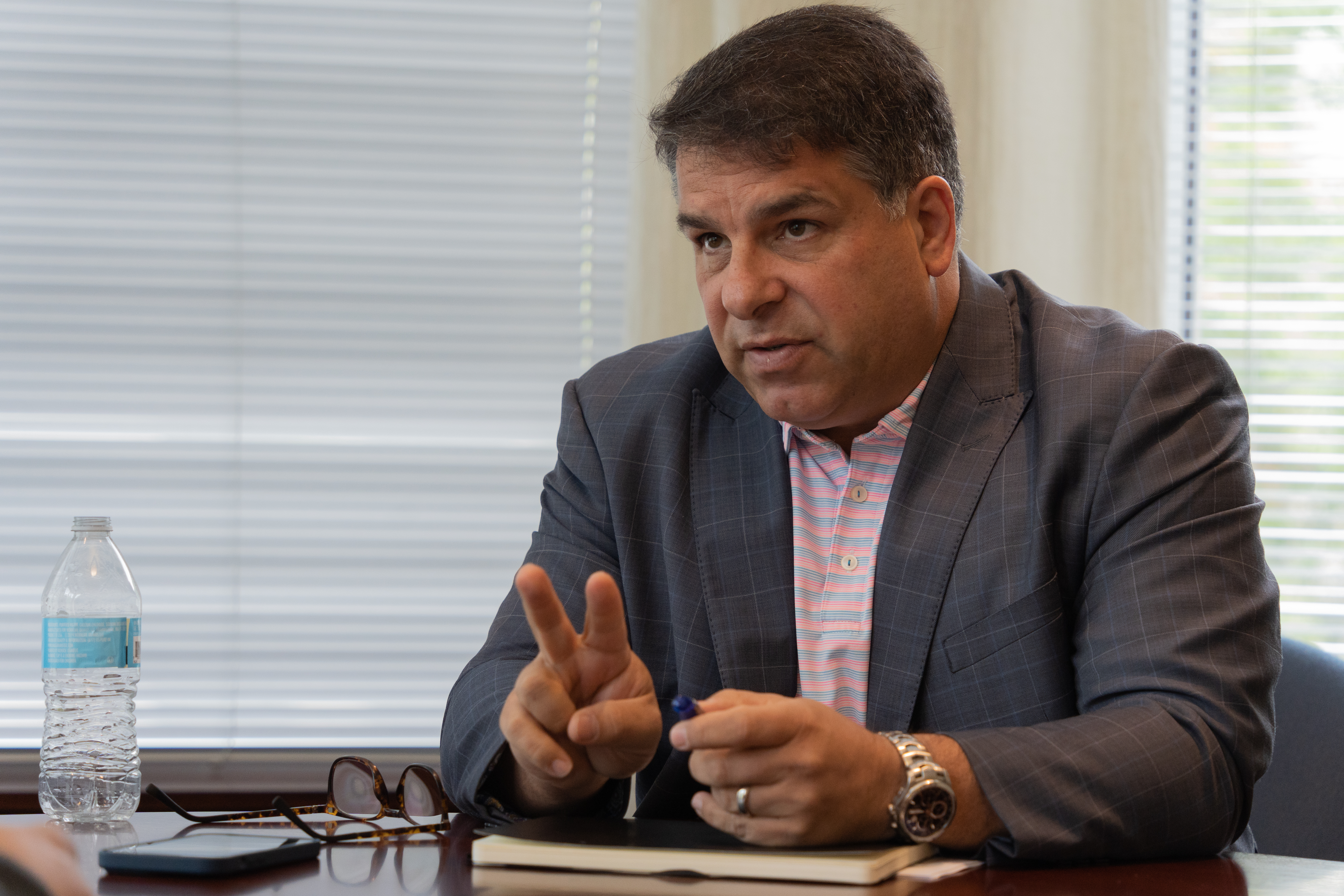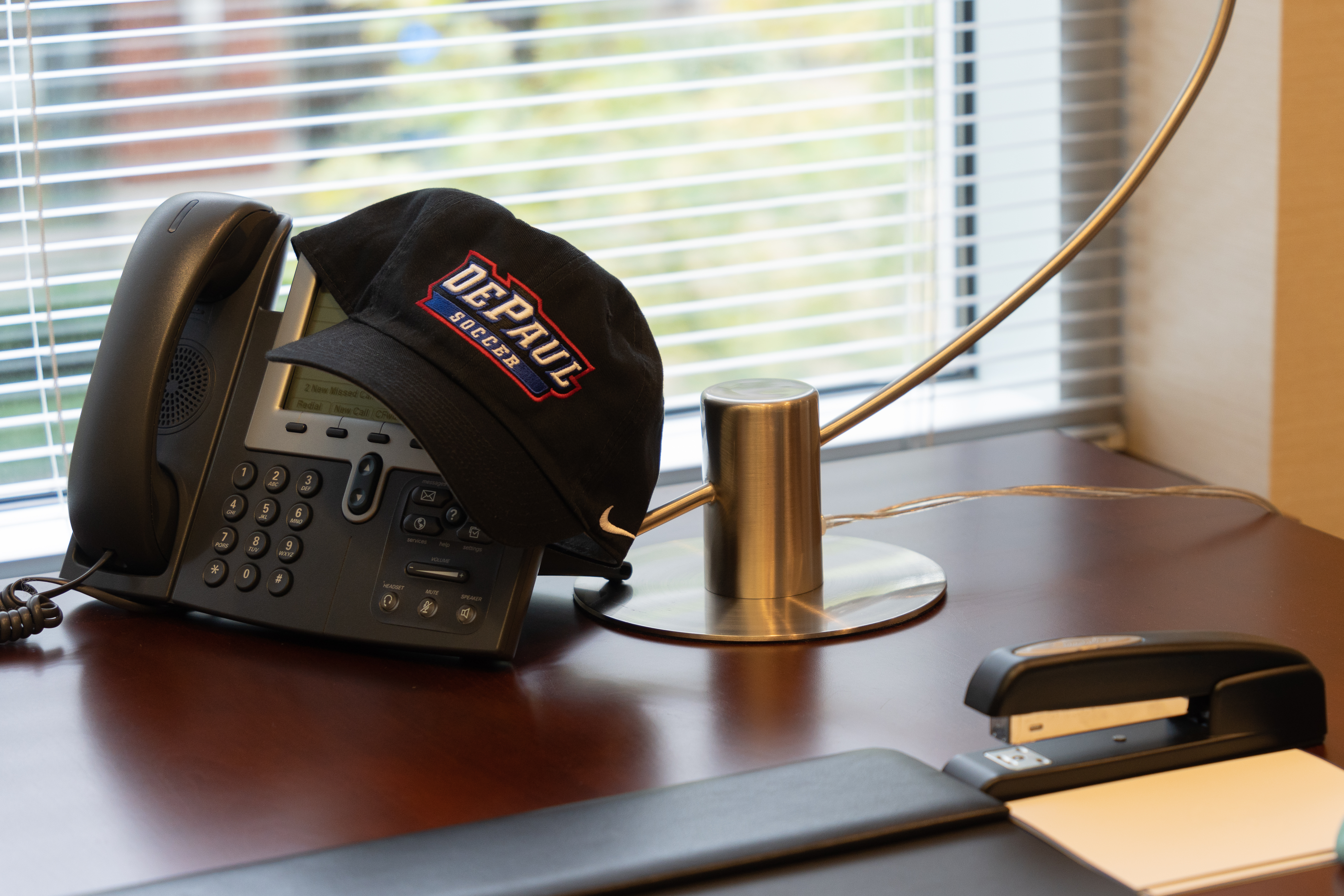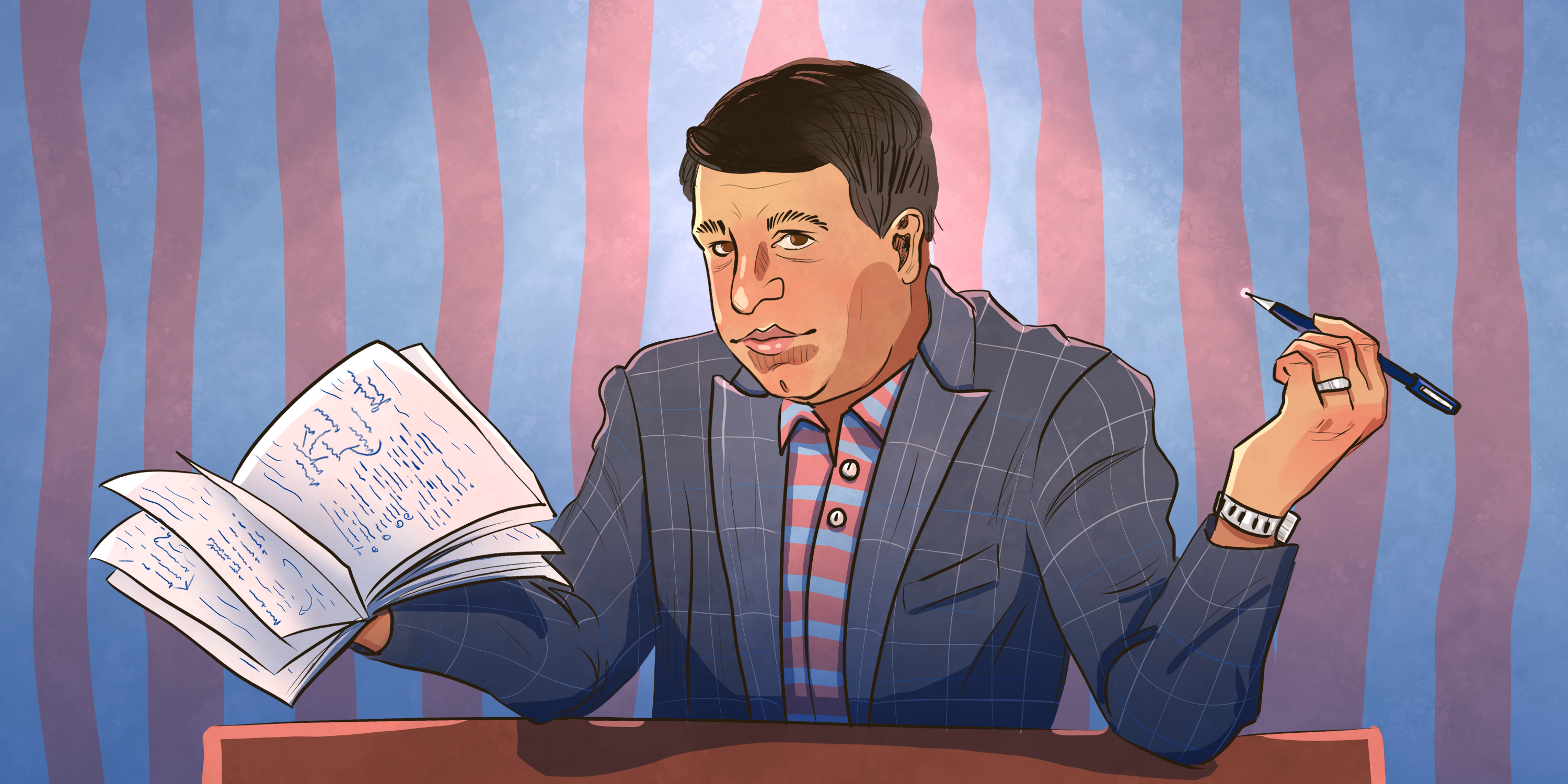President Manuel is prioritizing connection for DePaul’s future.
President Robert Manuel sees the transition out of the pandemic as being a “renaissance moment” to redefine DePaul’s relationship to the larger Chicago community. 14 East Editor-in-Chief Monique Mulima and Pueblo Managing Editor Richie Requena sat down with DePaul President Robert Manuel 42 days into his job to ask him about his goals for the university and his concerns as the university shifts back to pre-pandemic normalities.
“The structures that were put in place in the beginning in COVID are still there, they’re less on the website every day in communications because there are vaccines that are out there, there are ways to treat and now there’s more common knowledge about how to stay home when you have the stuff,” Manuel said.

President Robert Manuel discusses his goals for the school year in his Lincoln Park office on September 12. This includes efforts to expand first generation enrollment at the university. Photo by Emily Soto, 14 East
Manuel hopes to build stronger external partnerships for DePaul.
“A path for our students to study theoretically in the classroom, and apply that in the work that they do outside of that classroom. And that to me is the future of how we engage around larger questions that drive quality of life, both for Chicago and for the university, look at the overlap and engage in those areas,” Manuel said.
He hopes that students will be engaged on large societal topics such as sustainability, poverty and health disparities.
“If we’re going to prepare students to go out there and lead in these environments, we have to expose you to those questions early on, that’s part of our goal,” he said.
Manuel also hopes to bridge connections across DePaul’s campuses to create a greater sense of community. DePaul has continued the use of transportation buses between the Loop and Lincoln Park campuses and expanded their Vinny Van service with the intention of providing safe passage for students and keeping the campuses connected.

President Manuel’s first piece of DePaul gear — DePaul soccer hat — sits on his desk as he begins to settle in his Lincoln Park office. Photo by Emily Soto, 14 East
Another one of Manuel’s top priorities for the beginning of his tenure is increasing the number of first generation students at DePaul. First generation students are defined as students whose parents do not have an American Bachelor’s degree.
“Part of what drew me here was the commitment to first gen, to a diverse population, and to making sure that everybody is welcome, everybody has opportunity here,” he said.
In a 2020 summary created by the Dean of Undergraduate Admission, Carleen Klaas wrote that a “record 49% of freshmen are students of color, 34% are first-generation students, 32% are Pell-eligible and 23% are from the city of Chicago.”
Although approximately one third of freshmen are first generation, there have been difficulties with retention rate. The freshman class in 2020 had a two point drop in retention rate from previous years, going from 85% to 83%. Past years show that the two year retention rate drop is usually an additional 7% as well.
Manuel sees the expansion of steps to increase diversity and ties to the community that DePaul has already taken as being crucial in expanding first generation enrollment.
“[That’s] a unique role for DePaul to play because our population is extremely diverse in all aspects. And our ability to engage that, not just be next to each other, but be with each other is critical,” he said.
First generation college students are not a new priority for Manuel. While president at the University of Indianapolis he increased the number of first generation students to 43% of the freshmen class. Prior to that, the percentage of first generation students was 41.5% and declining.
While Manuel is just beginning his efforts to bring in and support more first generation students at DePaul, there are still many resources already available. The Office of Multicultural Student Success (OMSS) offers programming and resources for first generation students and their parents and the Division of Student Affairs offers assistance to first generation students through the TRiO Student Support Services program.
President Manuel’s goals for DePaul’s strategic plan are set to be announced on November 11.
Header illustration by Julia Hester




NO COMMENT